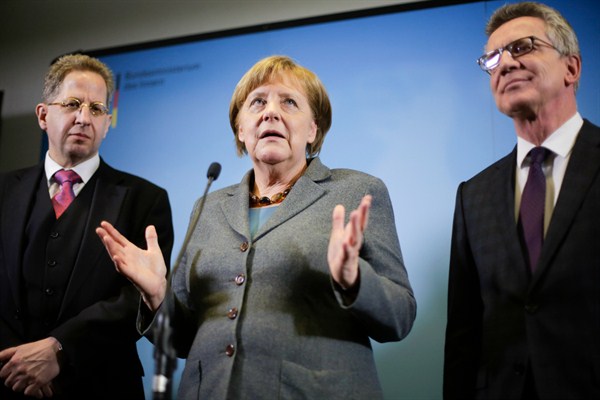Terrorist attacks and other violence this summer have put Germany on edge and worsened political tensions over Berlin’s handling of the refugee crisis. One week in July saw four attacks in multiple German cities, killing a total of 10 people; three were committed by men who had entered the country as asylum-seekers. Even before this violence, public sentiment toward refugees and migrants had soured after reports of widespread sexual assaults and other crimes that took place on New Year’s Eve in the German city of Cologne, perceived as being linked to the influx of refugees.
In early August, the government proposed a series of measures to combat terrorism, many of which center on heightened surveillance. The security package reflects a shift in Germany’s sense of security, tied to popular frustration with Chancellor Angela Merkel’s defense of her decision to accept over 1 million refugees in 2015.
Many elements of the security plan proposed by Interior Minister Thomas de Maiziere, such as a bolstered police force, technological upgrades, investigating the “dark web” and enhancing European cooperation, haven’t generated much opposition. But a proposal to restrict the rights of migrants who were denied asylum, and other proposals to enhance the government’s intelligence-gathering powers, haven’t sat well with human rights advocates and some members of the governing coalition. That’s because many Germans are loath to accept wide-ranging government surveillance, given a history of totalitarian rule under both Nazi and communist governments. The surveillance powers of the central government have remained curtailed and citizens’ privacy prioritized. But when he announced the proposals in August, de Maziere said Germany “must change” to face new threats.

